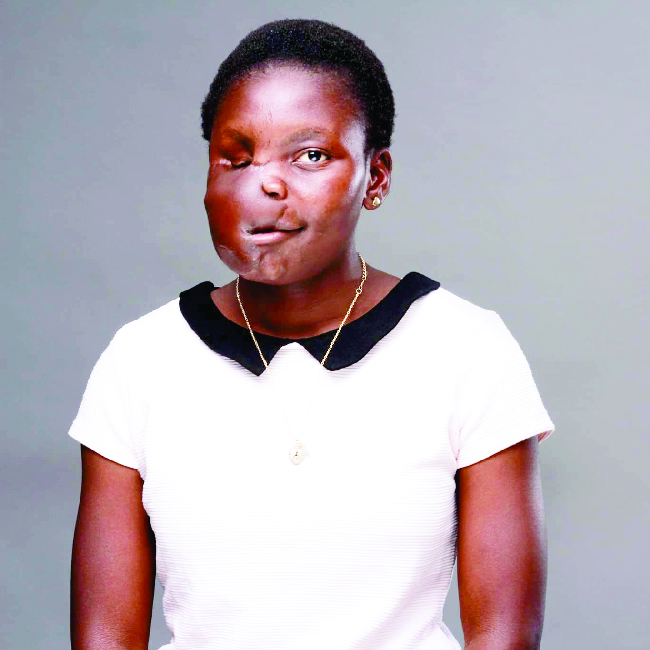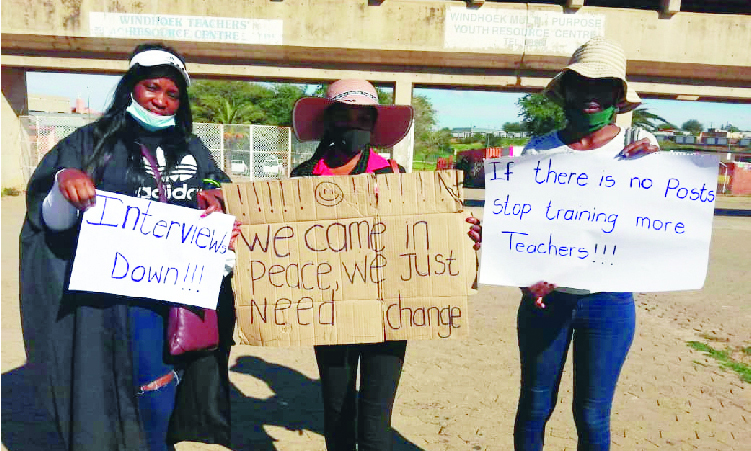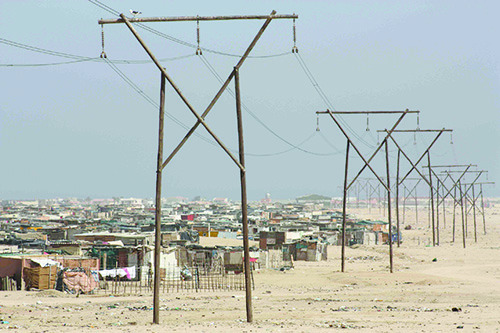NAMUTENYA Hamukoto did not look forward to going to school.
It was not so much the stares and occasional slaps she received from other children, it was the name that stuck – ‘Monster’.
One moment she saw a big girl and a big boy approaching her. The next moment she would be lying face down in the sand. Above her, the faces of her schoolmates glaring down at her, their laughter piercing her ears.
It would be a good few minutes before one of the teachers helped her up.
This was years ago in Grade 1.
Her parents eventually put her in a special school just to escape the bullying.
Hamukoto was born with the rare noma disease.
It involves a severe and aggressive gangrenous process affecting the mouth, nose, and lips.
She was about two years old when the disease started “eating my face”, Hamukoto recalls.
Now in her 20s, she remembers always being bullied about her looks.
“I knew I had a problem, but did not understand its magnitude. Other children called me a ghost and a witch doctor. I cried every day,” she says.
Hamukoto was transferred to Dagbreek School for the Intellectually Impaired in Windhoek.
By the time she reached high school, Hamukoto had returned to a mainstream school, and the bullying and name calling continued.
But this time Hamukoto would not stand for it.
“I wanted to see what would happen if I didn’t give up,” she says.
Her message to bullies is: “Just because we are different does not give you the right to treat us differently. We are all human beings. We deserve to be loved and to be treated just like any normal individual.”
Today, Hamukoto is a second-year business administration student at the University of Namibia.
Although Namibia has policies to protect children against bullying, this is not the experience of *Alice (8) of Mix informal settlement on the outskirts of Windhoek.
Alice was sent home because other children at her kindergarten were scared of her.
Her mother says Alice was born with a condition called cystic hygroma, which caused a huge cyst on the side of her face, neck and chest, and resulting in her tongue to protrude from her mouth.
In 2016, Alice, with the help of The Namibian Women Lawyers Association and other good Samaritans, underwent her first operation.
“I am very grateful to the Namibian nation for the help, especially Ruth Herunga, who helped us day and night. Not only did she make the operation possible, but she still assists us with groceries and medication … I desperately hope Alice gets help for her second and third operation.
“Alice is currently suspended from school because the teacher said the other children don’t feel comfortable and can’t eat when she is around,” Alice’s mother says.
She says Alice was doing very well when she started at the kindergarten.
“I love going to school. The only thing I don’t like is when the children won’t play with me and call me names,” Alice says.
According to a 2013 global school-based student health survey, 45,4% of girls and 47,9% of boys between the ages of 13 and 15 had been bullied at least once in the 30 days before the survey was conducted.
Rachel Odede, country representative of the United Nations International Children’s Emergency Fund (Unicef), in the report states that fighting and bullying are commonplace in schools, as are stigma and discrimination against pupils with disabilities.
Executive director of education, arts and culture Sanet Steenkamp says: “The vision of the policy of inclusivity that was adopted in 2014 paves the way for all children in Namibia to learn and participate fully in the education system …
Stay informed with The Namibian – your source for credible journalism. Get in-depth reporting and opinions for
only N$85 a month. Invest in journalism, invest in democracy –
Subscribe Now!










